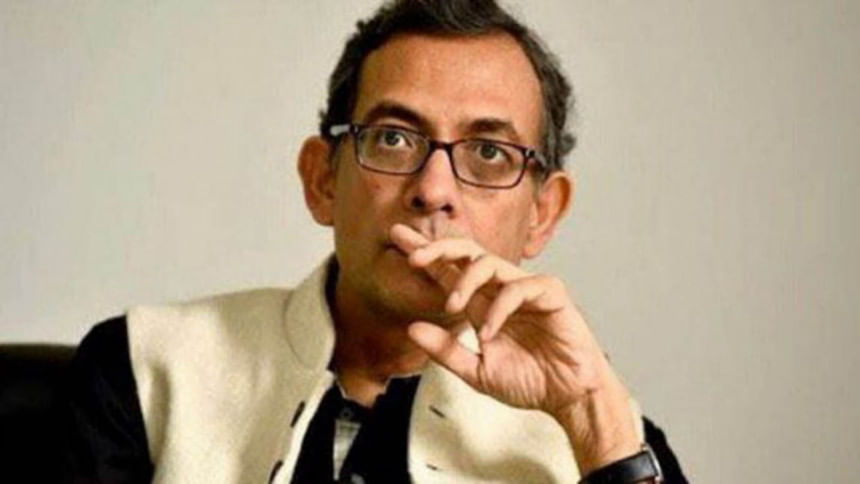Nobel laureate Abhijit at a glance

Indian-born Abhijit Banerjee of the US, French-American Esther Duflo and Michael Kremer of the US today won the 2019 Nobel Economics Prize for their work in fighting global poverty.
Here is the brief profile of Abhijit Vinayak Banerjee:
Fifty-eight-year-old Abhijit was born in Kolkata of India in 1961.
His mother Nirmala Banerjee was a professor of economics at the Centre for Studies in Social Sciences in Kolkata. Abhijit’s father Dipak Banerjee was a professor and the head of the Department of Economics at Presidency College in Kolkata.
He went to South Point School and completed his BS degree in economics from Presidency College in Kolkata in 1981.
Later, he completed his MA in economics at the Jawaharlal Nehru University, Delhi in 1983.
Abhijit completed his PhD in economics from Harvard University in 1988. The subject of his doctoral thesis was "Essays in Information Economics."
Abhijit first tied knot with Dr Arundhati Tuli Banerjee, a lecturer of literature at Massachusetts Institute of Technology (MIT) in US. They were divorced later. Their only son Kabir Banerjee, 25, died in March, 2016.
In 2015, Abhijit and MIT professor Esther Duflo married each other and they have a child.
Abhijit founded the Abdul Latif Jameel Poverty Action Lab (J-PAL) in 2003. J-PAL is a global research centre based in Massachusetts.
His works were focused in the field of development economics, with particular emphasis on alleviating global poverty.
He was elected a fellow of the American Academy of Arts and Sciences in 2004.
He was honoured with several prestigious awards including the Infosys Prize 2009 in the social sciences category of economics, Bernhard-Harms-Prize from the Kiel Institute for the World Economy in 2014 and Nobel Memorial Prize in Economic Sciences in 2019.
He also served on the UN Secretary-General’s high-level panel of eminent persons on the post-2015 development agenda.
This year, he delivered Export-Import Bank of India's 34th Commencement Day Annual Lecture on Redesigning Social Policy.
Banerjee was a president of the Bureau for the Research in the Economic Analysis of Development.
He was a research associate of the National Bureau of Economic Research, a research fellow at the Centre for Economic Policy Research, an international research fellow of the Kiel Institute, fellow at the American Academy of Arts and Sciences, and a fellow at the Econometric Society.
He also has been a Guggenheim Fellow and an Alfred P. Sloan Fellow.
Banerjee is currently the Ford Foundation International Professor of Economics at the Massachusetts Institute of Technology after he had taught at Harvard University and Princeton University.
He is a research affiliate of Innovations for Poverty Action, and a member of the Consortium on Financial Systems and Poverty.
He is the author of several books, including "What the Economy Needs Now" (2019), "Poor Economics" (2011).
All information has been compiled from different online portals including Wikipedia.

 For all latest news, follow The Daily Star's Google News channel.
For all latest news, follow The Daily Star's Google News channel. 






Comments